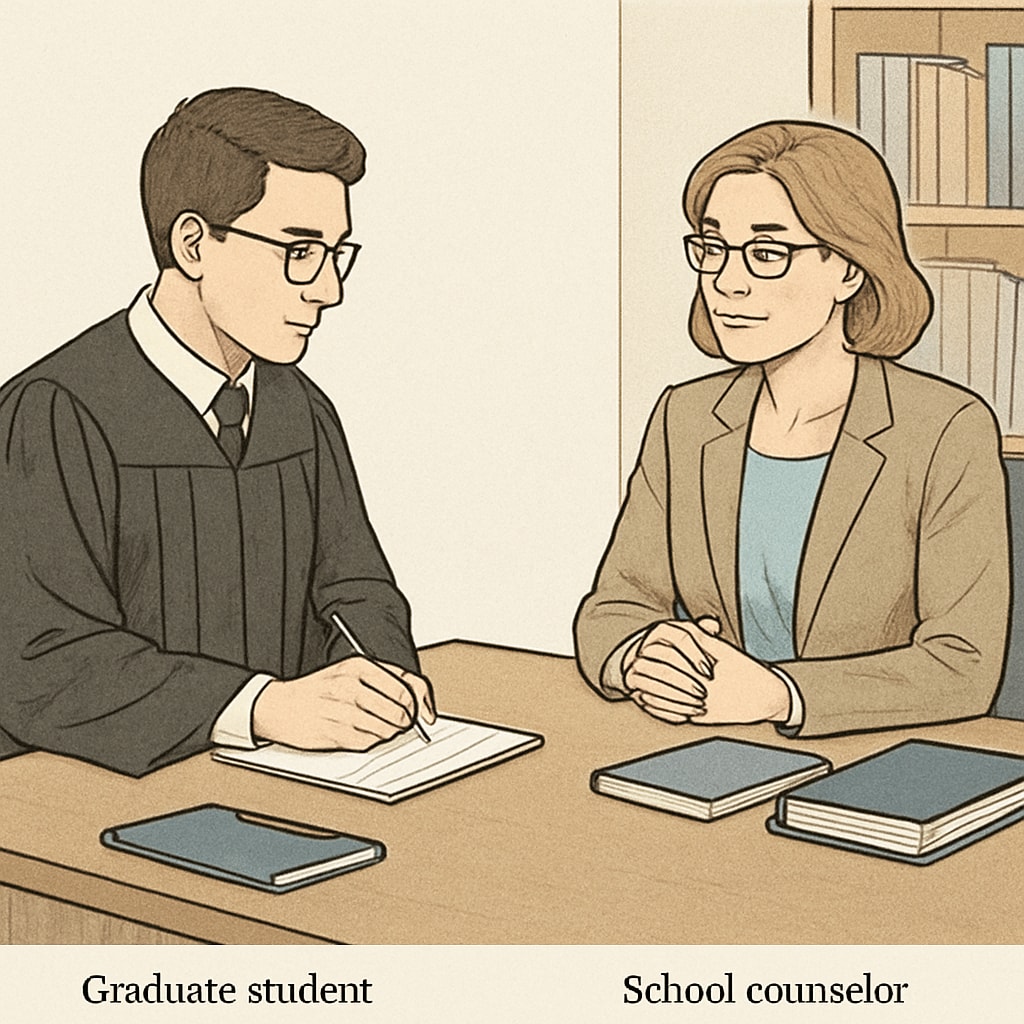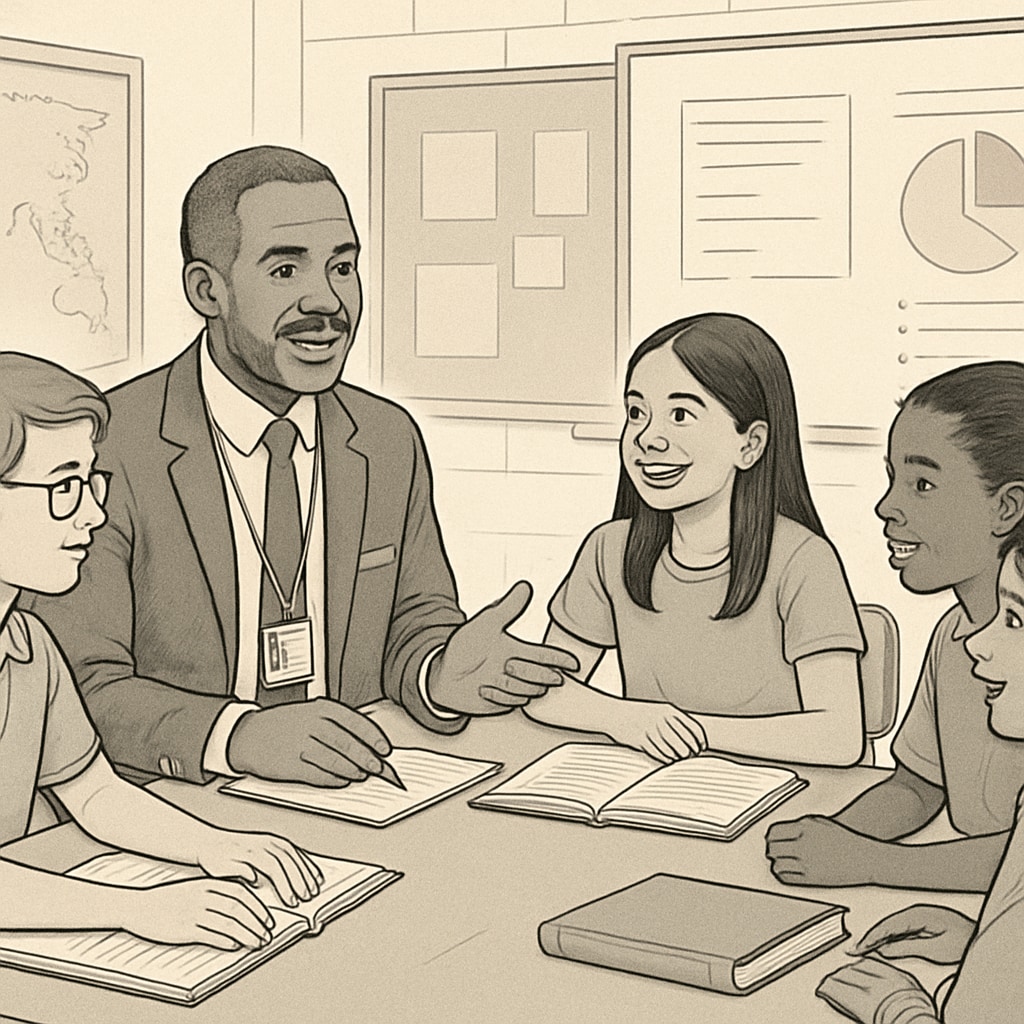Graduate students often rely on interviews with school counselors as part of their academic work, particularly when conducting research related to K12 education. These interactions serve as a bridge between theoretical study and practical application, offering insights that can enhance both educational research and school counseling practices. Despite the potential benefits, reaching out to school counselors for interviews can present challenges. This article delves into the importance of these academic collaborations, explores the obstacles graduate students might face, and offers actionable strategies to foster successful communication.

Why Collaboration Between Graduate Students and K12 Counselors Matters
Collaboration between graduate students and K12 counselors is a mutually beneficial relationship that enriches both academic and practical perspectives. Graduate students gain firsthand insights into the realities of school counseling, helping to ground their research in practical applications. Meanwhile, K12 counselors can provide valuable feedback on research methodologies and findings, ensuring the relevance of academic studies to real-world challenges.
For example, a study on the effectiveness of mental health interventions in schools could benefit immensely from the insights of counselors who work directly with students. Their professional experience can provide critical data points that improve the study’s outcomes and applicability. Moreover, these collaborations can inspire innovative solutions to pressing educational and counseling challenges.
Challenges in Conducting Interviews with School Counselors
While the benefits of collaboration are clear, graduate students often encounter hurdles when attempting to interview school counselors. Common challenges include:
- Scheduling conflicts: Counselors are often busy managing student needs, making it difficult to find time for interviews.
- Lack of familiarity: Some counselors may be hesitant to share detailed information with individuals outside their professional network.
- Ethical concerns: Ensuring confidentiality and adhering to ethical research practices can be complex.
As a result, graduate students must approach these interviews with sensitivity, professionalism, and a clear understanding of the challenges school counselors face.

Strategies for Effective Communication and Collaboration
To maximize the success of interviews and foster meaningful collaboration, graduate students can follow these strategies:
- Prepare thoroughly: Develop clear, concise questions that respect the counselor’s time and focus on relevant topics.
- Use professional outreach: Email or call counselors with a well-crafted introduction, explaining the purpose of the interview and its potential value.
- Offer flexibility: Be willing to adjust your schedule to accommodate the counselor’s availability.
- Ensure ethical practices: Provide documentation of ethical compliance, such as informed consent forms and confidentiality agreements.
- Express gratitude: Acknowledge the counselor’s contribution to your research, emphasizing the importance of their insights.
By following these steps, graduate students can build trust and foster productive relationships with school counselors, ensuring their research contributes positively to the field of education.
The Shared Impact of Graduate-K12 Collaborations
When graduate students and K12 counselors collaborate effectively, the impact extends beyond individual research projects. Such partnerships contribute to the development of evidence-based practices, improve educational outcomes, and strengthen the bridge between academic theory and practical application. For example, research findings shaped by counselor insights can help schools implement more effective programs for student wellness, academic achievement, or social-emotional learning.
As a result, these collaborations not only benefit the graduate student’s academic journey but also enhance the overall quality of education and counseling services in schools.
In conclusion: Building connections between graduate students and K12 counselors is a vital step in advancing educational research and practice. By addressing challenges proactively and embracing strategies for effective communication, both parties can create a partnership that drives meaningful progress in the field of education.


